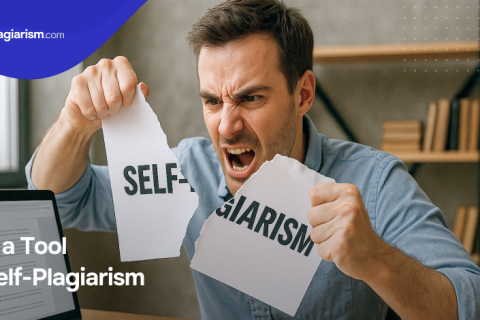Reducing plagiarism
22 May 2017
Plagiarism has become so utterly common nowadays that its prevalence really bothers teachers and lecturers. It is so farfetched nowadays that it has really become a cause for concern. The rate at which its cases are increasing is absolutely alarming. Not only that, it is becoming so common and people are treating it so casually has made it an issue to be dealt with at the earliest. Most of the times it is seen in the field of academics, and the students are most often indulging in plagiarising. While many are doing it intentionally while being fully aware of its nature there are a few students who do it out of ignorance. But whatever the reasons for it, nothing can justify it and we ought to take all steps to combat it at the earliest. There is only one simple and direct method of doing it and that is by enlightening students about all its aspects. You can read about in great detail on the theplagiarism.com. These aspects should include everything from what constitutes as plagiarising as well as all types and why it is wrong.
The first method is to tell students of its consequences. Nothing will deter students from indulging in it more than fear of its consequences. They ought to be told that plagiarism has some very serious consequences that can go as far as being black listed and being expelled. These consequences will very effectively prevent students from doing it and will go a long way in stopping them from plagiarising. The second method concerns telling the students about why plagiarising is such a serious offense. They need to be told that it is nothing short of stealing from another person, his or her ideas and on top of that not giving them the credit that is due to them. This is what makes it such a wrong act on all level morally and socially. The third method to combat it is by giving very specific assignments. Lecturers should give very specific assignments if they wish to combat this practice. This can be done by asking for the assignment in a very specific format. It can also be done by asking the students to answer very specific questions through their assignments and also by giving assignments on very specific topics that are special subtopics under a large broad topic. Another fourth method is by asking for photocopies of the reference sources. This method is very effective as it asks students for the sources that they have used. Thus a student does not do plagiarism as he or she ends up giving the source of information used. This is because by giving the photocopies the student is clearly pointing to the material he or she has used and thus not hiding anything. The next method, the fifth one, is by asking students for a rough outline followed by a rough draft before submitting their final assignment. The rough outline is basically a small report on how the student intends to go about his or her assignment, that is, which topics he or she will cover and the basic layout of the assignment. The rough draft as the name suggests will be a rough edition of the student’s assignment in which the student will have covered most of the major topics in the given format. This rough draft would only be in need of further editing to turn it into the final one. To avoid plagiarism the mentors should have regular meetings with their students. These meeting will be held with the intention of guiding the students at all steps of their assignment and at the same time with the intention of clearing and helping the students with any doubts or obstacles that they might encounter during their assignment. The last method is by doing two things. Firstly keeping copies of the previous assignments of all the students and the second is by keeping a watch on students who have previously indulged in plagiarism. These methods will surely help to combat this menace.






